第90章 Chapter 19(1)
1881-1887
The Browning Society;Mr.Furnivall;Miss E.H.Hickey --His Attitude towards the Society;Letter to Mrs.Fitz-Gerald --Mr.Thaxter,Mrs.Celia Thaxter --Letter to Miss Hickey;'Strafford'--Shakspere and Wordsworth Societies --Letters to Professor Knight --Appreciation in Italy;Professor Nencioni --The Goldoni Sonnet --Mr.Barrett Browning;Palazzo Manzoni --Letters to Mrs.Charles Skirrow --Mrs.Bloomfield Moore --Llangollen;Sir Theodore and Lady Martin --Loss of old Friends --Foreign Correspondent of the Royal Academy --'Parleyings with certain People of Importance in their Day'.
This Indian summer of Mr.Browning's genius coincided with the highest manifestation of public interest,which he,or with one exception,any living writer,had probably yet received:the establishment of a Society bearing his name,and devoted to the study of his poetry.
The idea arose almost simultaneously in the mind of Dr.,then Mr.Furnivall,and of Miss E.H.Hickey.One day,in the July of 1881,as they were on their way to Warwick Crescent to pay an appointed visit there,Miss Hickey strongly expressed her opinion of the power and breadth of Mr.Browning's work;and concluded by saying that much as she loved Shakespeare,she found in certain aspects of Browning what even Shakespeare could not give her.Mr.Furnivall replied to this by asking what she would say to helping him to found a Browning Society;and it then appeared that Miss Hickey had recently written to him a letter,suggesting that he should found one;but that it had miscarried,or,as she was disposed to think,not been posted.Being thus,at all events,agreed as to the fitness of the undertaking,they immediately spoke of it to Mr.Browning,who at first treated the project as a joke;but did not oppose it when once he understood it to be serious.
His only proviso was that he should remain neutral in respect to its fulfilment.He refused even to give Mr.Furnivall the name or address of any friends,whose interest in himself or his work might render their co-operation probable.
This passive assent sufficed.A printed prospectus was now issued.
About two hundred members were soon secured.A committee was elected,of which Mr.J.T.Nettleship,already well known as a Browning student,was one of the most conspicuous members;and by the end of October a small Society had come into existence,which held its inaugural meeting in the Botanic Theatre of University College.
Mr.Furnivall,its principal founder,and responsible organizer,was Chairman of the Committee,and Miss E.H.Hickey,the co-founder,was Honorary Secretary.When,two or three years afterwards,illness compelled her to resign this position,it was assumed by Mr.J.Dykes Campbell.
Although nothing could be more unpretending than the action of this Browning Society,or in the main more genuine than its motive,it did not begin life without encountering ridicule and mistrust.
The formation of a Ruskin Society in the previous year had already established a precedent for allowing a still living worker to enjoy the fruits of his work,or,as some one termed it,for making a man a classic during his lifetime.But this fact was not yet generally known;and meanwhile a curious contradiction developed itself in the public mind.The outer world of Mr.Browning's acquaintance continued to condemn the too great honour which was being done to him;from those of the inner circle he constantly received condolences on being made the subject of proceedings which,according to them,he must somehow regard as an offence.
This was the last view of the case which he was prepared to take.
At the beginning,as at the end,he felt honoured by the intentions of the Society.He probably,it is true,had occasional misgivings as to its future.He could not be sure that its action would always be judicious,still less that it would be always successful.
He was prepared for its being laughed at,and for himself being included in the laughter.He consented to its establishment for what seemed to him the one unanswerable reason,that he had,even on the ground of taste,no just cause for forbidding it.No line,he considered,could be drawn between the kind of publicity which every writer seeks,which,for good or evil,he had already obtained,and that which the Browning Society was conferring on him.His works would still,as before,be read,analyzed,and discussed 'viva voce'and in print.That these proceedings would now take place in other localities than drawing-rooms or clubs,through other organs than newspapers or magazines,by other and larger groups of persons than those usually gathered round a dinner-or a tea-table,involved no real change in the situation.In any case,he had made himself public property;and those who thus organized their study of him were exercising an individual right.
If his own rights had been assailed he would have guarded them also;but the circumstances of the case precluded such a contingency.
And he had his reward.How he felt towards the Society at the close of its first session is better indicated in the following letter to Mrs.Fitz-Gerald than in the note to Mr.Yates which Mr.Sharp has published,and which was written with more reserve and,I believe,at a rather earlier date.Even the shade of condescension which lingers about his words will have been effaced by subsequent experience;and many letters written to Dr.Furnivall must,since then,have attested his grateful and affectionate appreciation of kindness intended and service done to him.
...They always treat me gently in 'Punch'--why don't you do the same by the Browning Society?I see you emphasize Miss Hickey's acknowledgement of defects in time and want of rehearsal:but I look for no great perfection in a number of kindly disposed strangers to me personally,who try to interest people in my poems by singing and reading them.